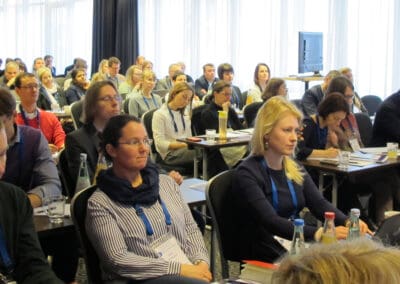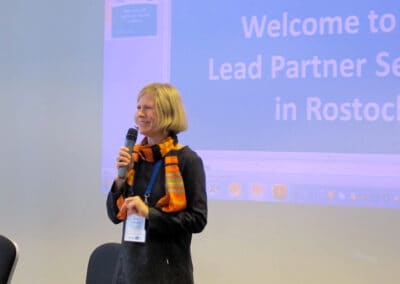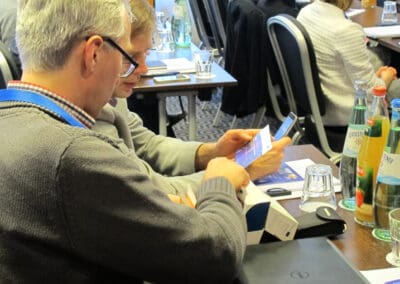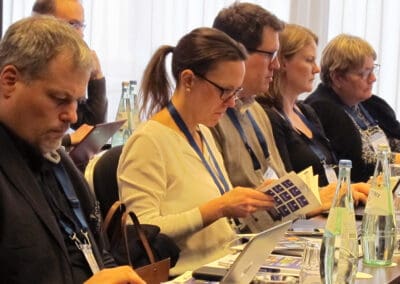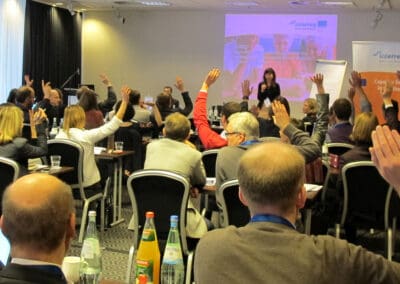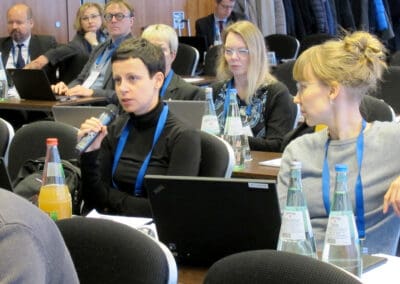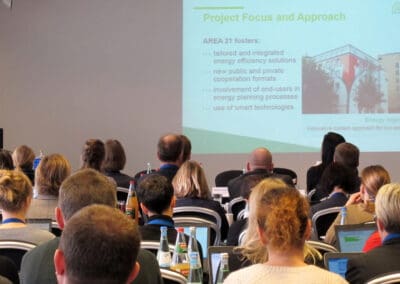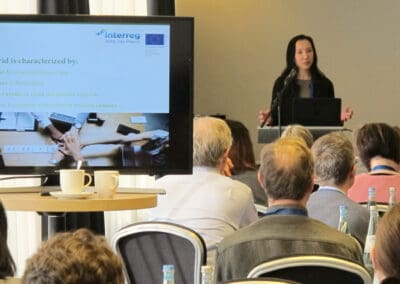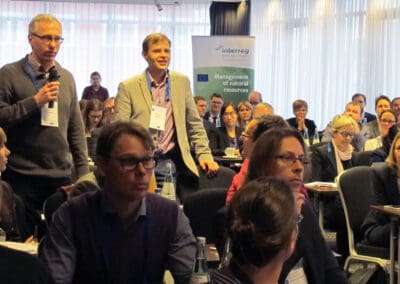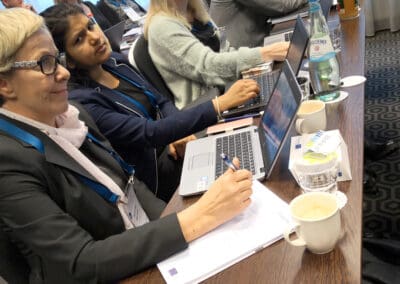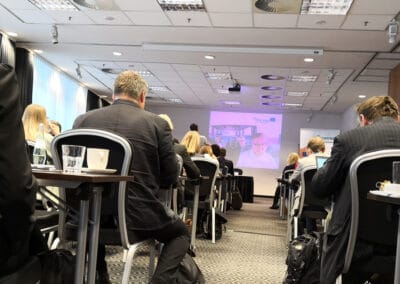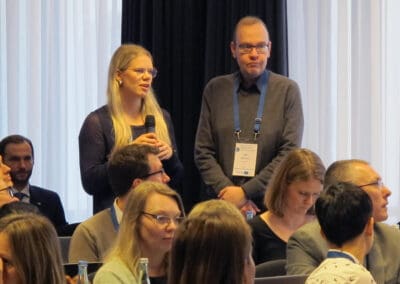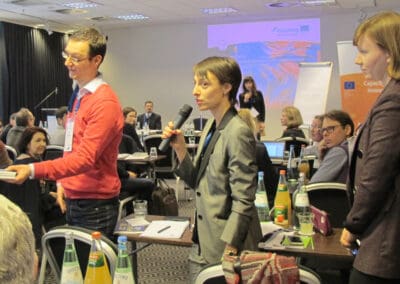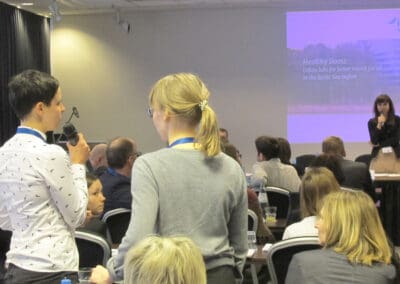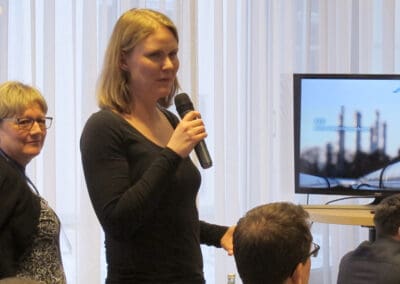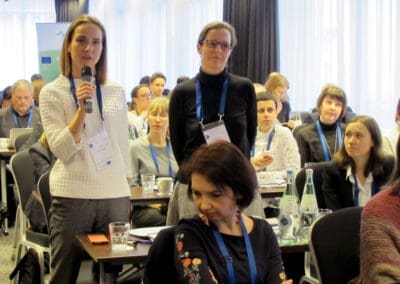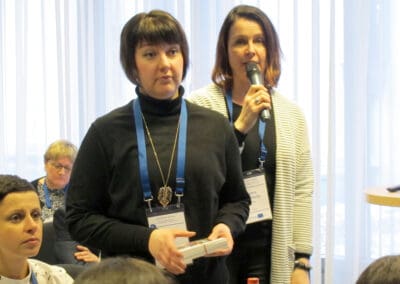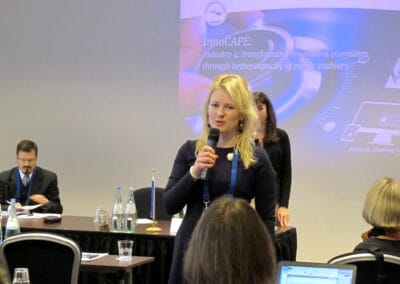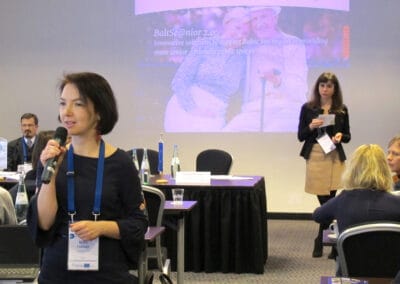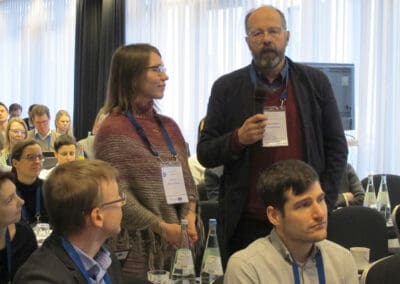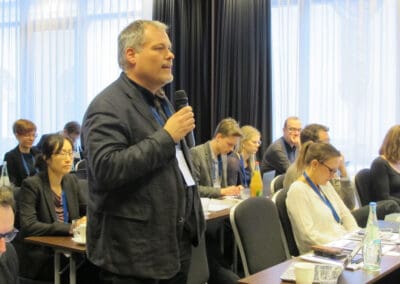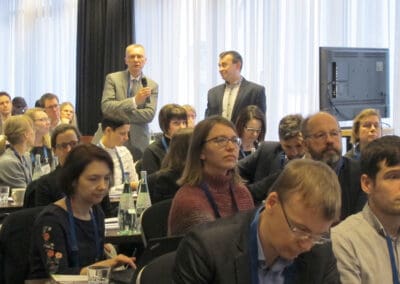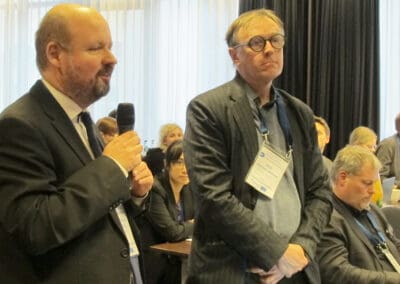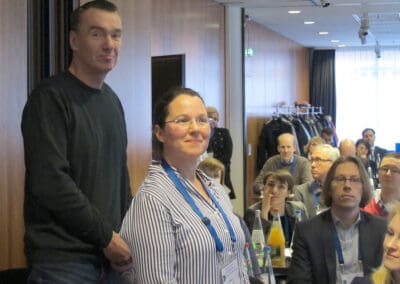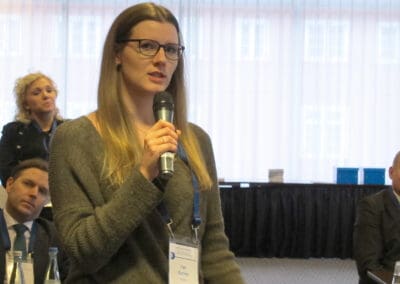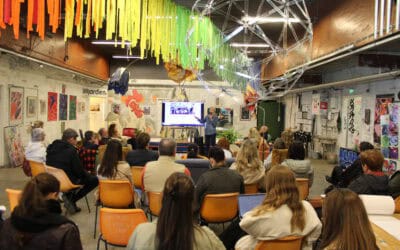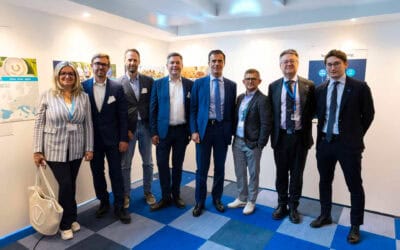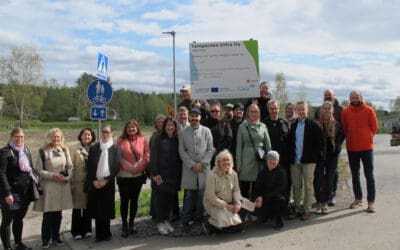More than 50 project representatives from Interreg Baltic Sea Region projects approved in the third call attended the Lead Partner Seminar to learn together how to run a project successfully and bring the best results to the regions and cities around the Baltic Sea.
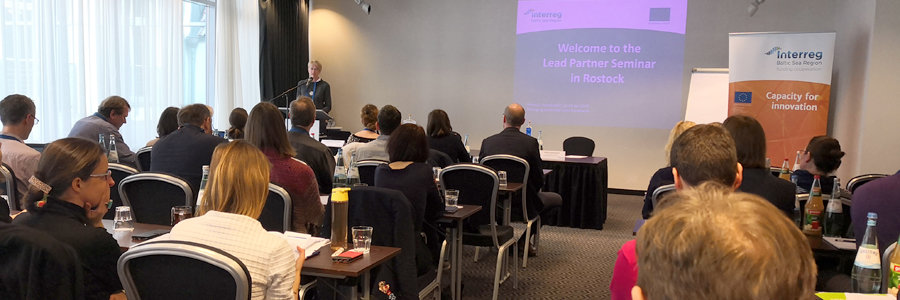
Lead Partner Seminar 2019, © IB.SH/Anna Galyga
Welcome to the Interreg family
‘Participating in an Interreg project is a fascinating thing to do. Welcome to the world of cooperation’ – with these words Susanne Scherrer, Head of the Managing Authority/Joint Secretariat (MA/JS) of the Interreg Baltic Sea Region Programme greeted representatives of projects approved in September 2018 in the third call for applications. The projects are currently in the phase of kicking off their activities, and the meeting in Rostock on 22-23 January 2019 was about gaining more insight into the project lifecycle, finances, reporting, outcomes and communication.
Knowledge for lead partners to lead the partnership
All in all, seminars for lead partners are meant to provide all-you-need-to-know type of information to help the projects advance with their activities. Equally important is an opportunity to meet with other projects as well as with the MA/JS staff, under the supervision of whom, the project partnerships will work for the upcoming months.
The event opened a getting to know session, during which project representatives were introduced and could address other colleagues with a couple of words about their project. Only then, a detailed overview of a project lifecycle, including reporting hints and working in an online monitoring system, were presented to the gathered. Next, in smaller groups, project representatives got familiarised with details on the project outcomes, communication & project changes as well as finances.
Transnational cooperation is about trust
‘We need cooperation in Europe, we need it more than ever. And 2019 is a good time to prove it,’ Susanne Scherrer encouraged all the projects to work together across borders to make the Baltic Sea region a better place to work and live.
31 projects were approved in the third call for project applications in September 2019 with as much as EUR 56 million of the European Regional Developing Fund (ERDF), EUR 1.9 million of the Norwegian National Fund and EUR 1.4 million of ENI/Russian National Fund allocated to them.



